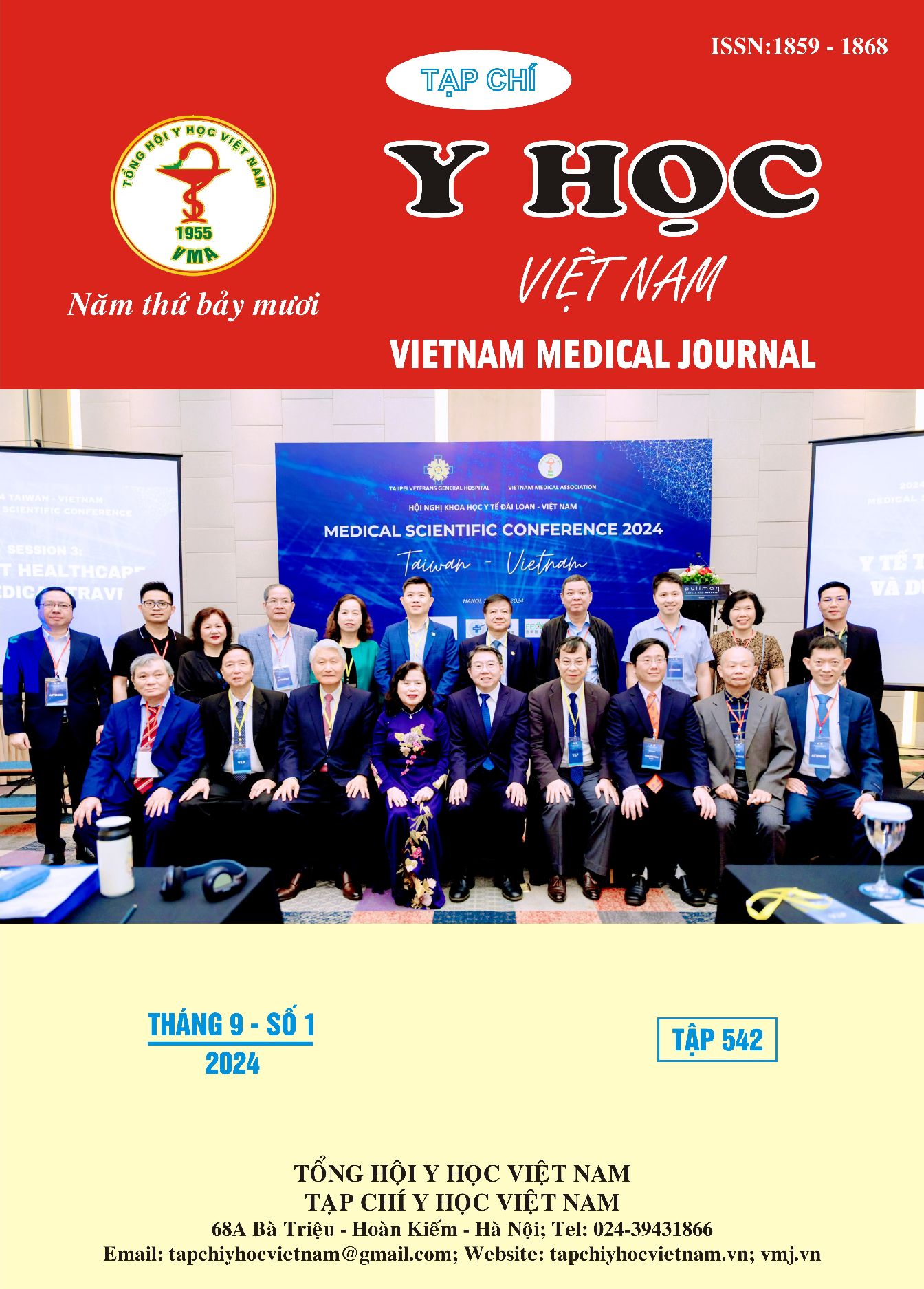KIẾN THỨC – THÁI ĐỘ VỀ QUE CẤY TRÁNH THAI IMPLANON CỦA NGƯỜI PHỤ NỮ SAU SINH 6-12 TUẦN TẠI BỆNH VIỆN PHỤ SẢN MÊKÔNG TRONG GIAI ĐOẠN ĐẠI DỊCH COVID
Nội dung chính của bài viết
Tóm tắt
Mục tiêu: Xác định tỷ lệ kiến thức đúng và thái độ đúng về que cấy tránh thai Implanon của sản phụ sau sinh 6-12 tuần tại bệnh viện Phụ Sản Mekong trong thời gian từ tháng 11/2021 đến tháng 6/2022, thời điểm ngay sau ngưng phong tỏa dịch Covid ở thành phố Hồ Chí Minh, Việt Nam. Phương pháp: Nghiên cứu cắt ngang được tiến hành trên 393 sản phụ sau sinh 6-12 tuần đến khám tại bệnh viện phụ sản MêKông. Kết quả: Trong khoảng thời gian nghiên cứu, ngay sau thời điểm chấm dứt lệnh ngưng phong tỏa của dịch COVID-19, tại khoa Khám bệnh, bệnh viện Phụ sản MêKông, chúng tôi đã mời được 401 sản phụ đồng ý tham gia nghiên cứu và có 393 đối tượng thỏa các tiêu chí chọn mẫu. Tỷ lệ phụ nữ có kiến thức đúng về QCTT là 32,3%, có thái độ tốt về QCTT là 41,5%. Các phụ nữ chấp nhận cấy que TT ngay sau tư vấn chỉ có có 21,2%, KTC 95% (17,2% -25,6%). Hơn phân nửa người phụ nữ không có lý do rõ ràng khi không chọn QCTT ( 62,2%); 23,2% đối tượng không chọn QCTT do hài lòng với BPTT cũ, chỉ có 4,4% không chọn QCTT là do đắt tiền. Kết luận: Kiến thức, thái độ và hành vi về que cấy tránh thai Implanon ® vẫn chưa có nhiều cải thiện dù trong giai đoạn đại dịch COVID, việc tiếp cận với các dịch vụ y tế về kế hoạch gia đình rất khó khăn.
Chi tiết bài viết
Từ khóa
kiến thức, thái độ, que cấy tránh thai Implanon ®, hậu sản
Tài liệu tham khảo
2. Barbieri MM, Herculano TB, Dantas Silva A, Bahamondes L, Juliato CRT, Surita FG. Acceptability of ENG-releasing subdermal implants among postpartum Brazilian young women during the COVID-19 pandemic. Int J Gynaecol Obstet. 2021;154(1):106-112.
3. World Health Organization. Pulse survey on continuity of essential health services during the COVID-19 pandemic: interim report 27 August 2020 [Internet] Geneva (CH): World Health Organization; c2020. [cited 2021 Sep 15]. Available from: https://www.who.int/publications/ i/item/WHO-2019-nCoV-EHS_continuity-survey-2020.1 .
4. International Federation of Gynaecology and Obstetrics. FIGO committee on contraception and family planning statement on COVID-19 and pregnancy [Internet] London (UK): FIGO; c2021. [cited 2021 Oct 10]. Available from: https://www.figo.org/covid-19-contraception-family-planning
5. Hồng Thành Tài (2015), "Kiến thức và thái độ của phụ nữ về que cấy tránh thai ở phụ nữ đang dùng Implanon tại bệnh viện Từ Dũ", Luận văn thạc sĩ y học, Đại học y dược thành phố Hồ Chí minh, tr.25-32.
6. Makola E. Knowledge, attitude and practice of women regarding contraceptive implants, in Odendaalsrus, Lejweleputswa District, Free State Province. Master in Medicine (Family medicine), University of Free State, https://scholar.ufs.ac.za
7. PhanThùy Linh. Kiến thức, thái độ và các yếu tố liên quan của phụ nữ đã kết hôn với phương pháp cấy que ngừa thai dưới da tại bệnh viện Từ Dũ. Y Học TP Hồ Chí Minh 2019;23(2)
8. Jae Hoon Lee, Jae Yen Song, Kyong Wook Yi, Contraception in the COVID-19 pandemic: recommendations from the Korean society of contraception and reproductive health. Obstet Gynecol Sci. 2022 Mar; 65 (2): 125-132. Published online 2022 Jan 26. doi: 10.5468/ ogs.21322


